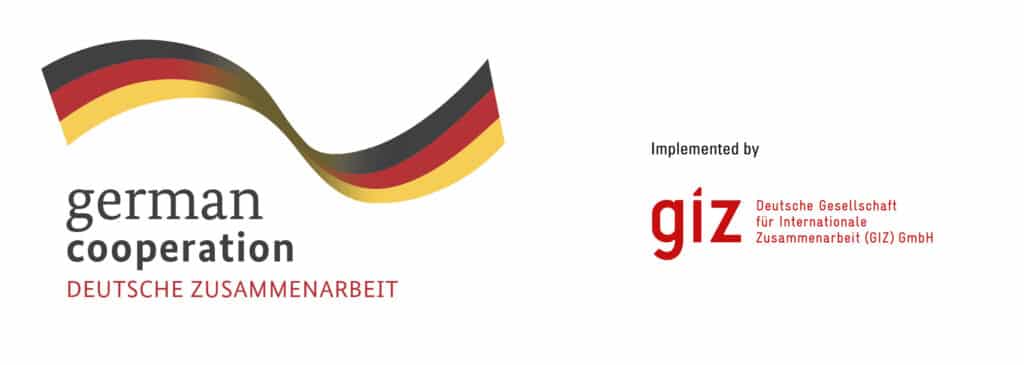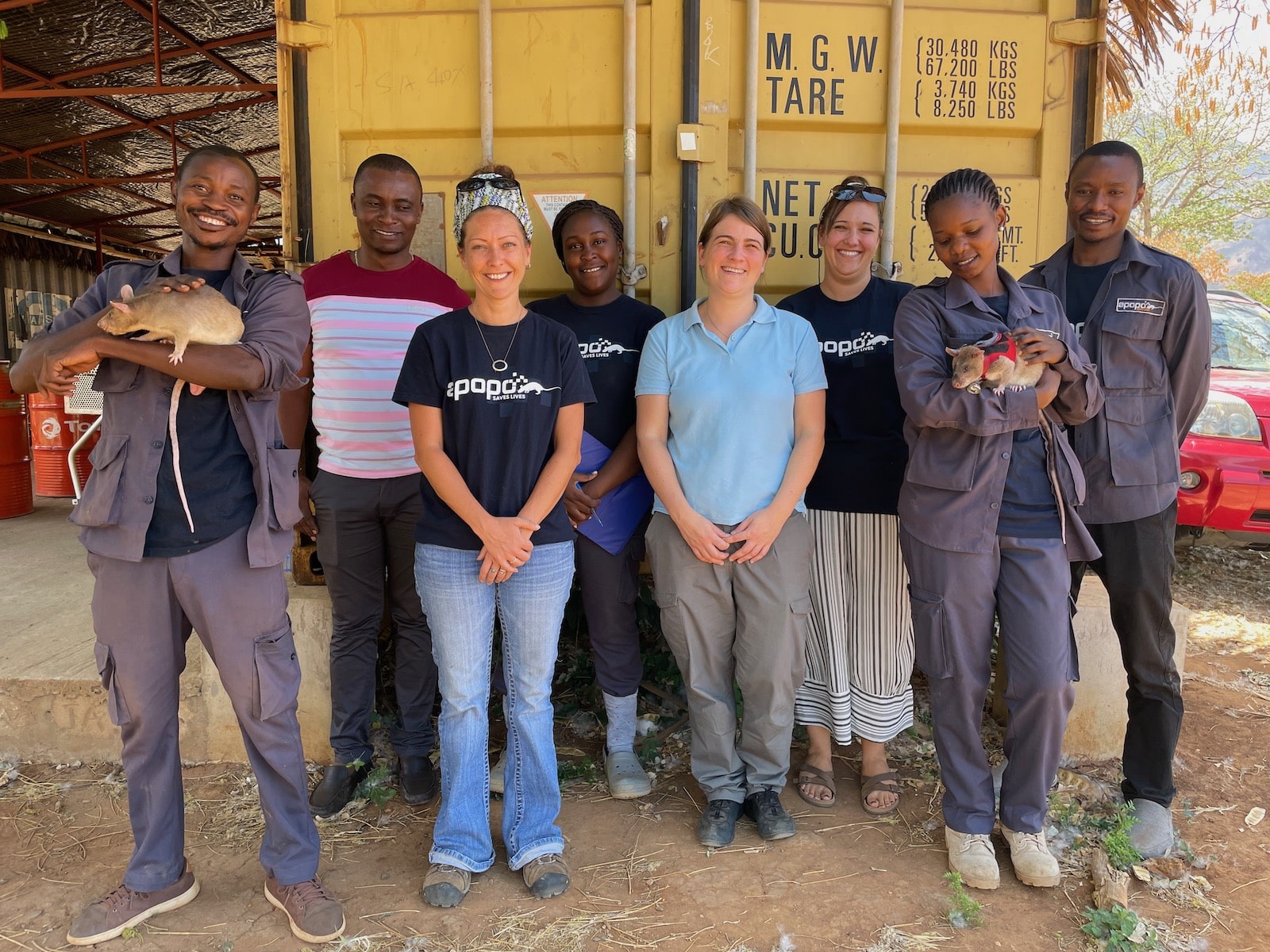This week on Wednesday October 26th, APOPO’s Innovation team in Tanzania was thrilled to host a high-level visit from Flora Müller, advisor with Deutsche Gesellschaft für Internationale Zusammenarbeit (GIZ). The GIZ ‘Partnership against Wildlife Crime (in Africa and Asia)’ program, commissioned by the German Government, has been supporting APOPO’s ground-breaking wildlife detection research since 2019.
APOPO is proud to play a role in global efforts to protect wildlife. In partnership with the Endangered Wildlife Trust (EWT) in South Africa, APOPO has been training African giant pouched rats over the past few years to help in the fight against wildlife crime. Although APOPO is best known for training rats to detect landmines and tuberculosis, APOPO is training this separate group of 14 little heroes to protect some of Africa’s threatened wildlife including pangolins, the world’s only scaly mammal and the most trafficked, from going extinct.
The Pangolin
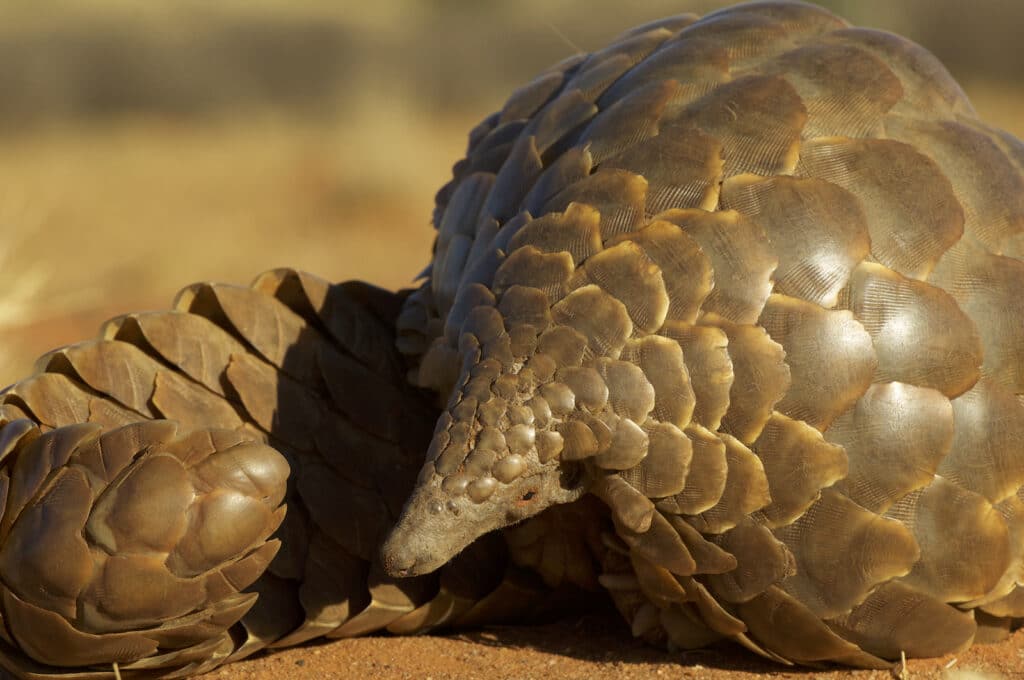
Pangolin scales are made of keratin, the same material as fingernails, hair, and horns. They have no proven medicinal value, yet they are used in traditional Asian and African medicine. This illegal wildlife trade threatens iconic African species and robs local communities of their natural heritage.
With project support from the GIZ and the UNDP-GEF-USAID Reducing Maritime Trafficking of Wildlife between Africa and Asia project under the World Bank-led Global Wildlife Program, APOPO is developing ways for the rats to put their specialized skill to use by screening shipping containers for these wildlife products.
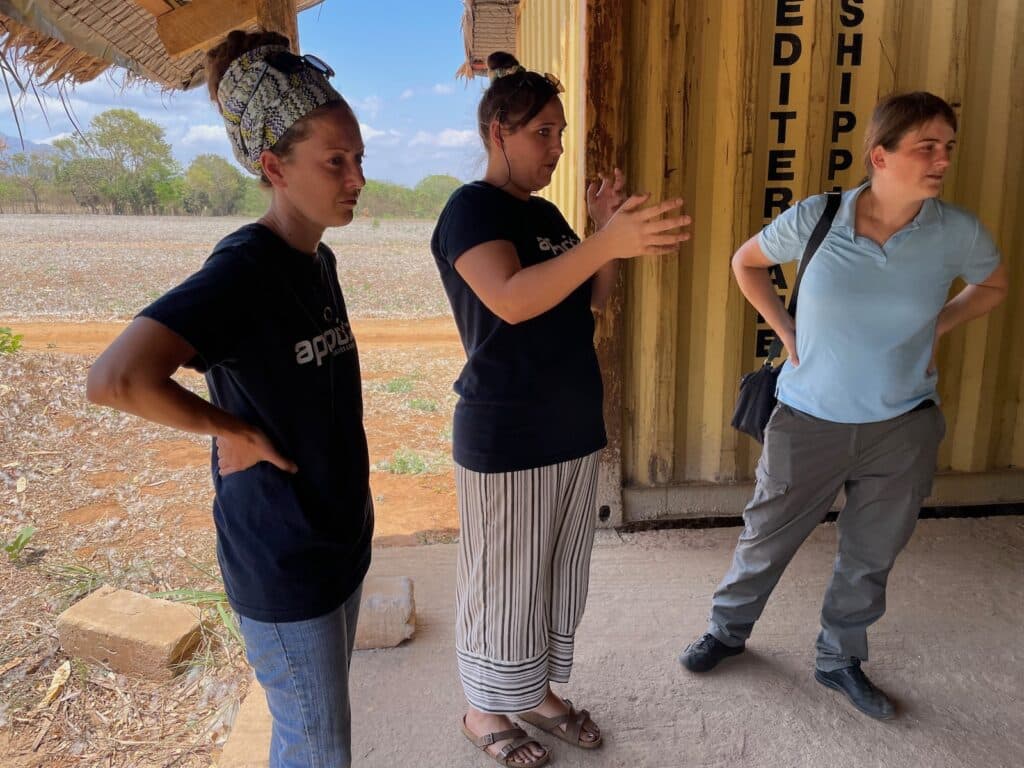
To aid future deployment where the rats may need to work in tightly packed containers out of direct sight of their handler, these heroes are trained to remotely signal when they find a target by pulling a small ball on their harness which triggers a microswitch. Project lead Dr. Izzy Szott and Head of Innovation Dr. Cindy Fast, gave Flora a comprehensive overview of our work and she was able to see the training of young wildlife detection rats as they learn to indicate a positive sample.
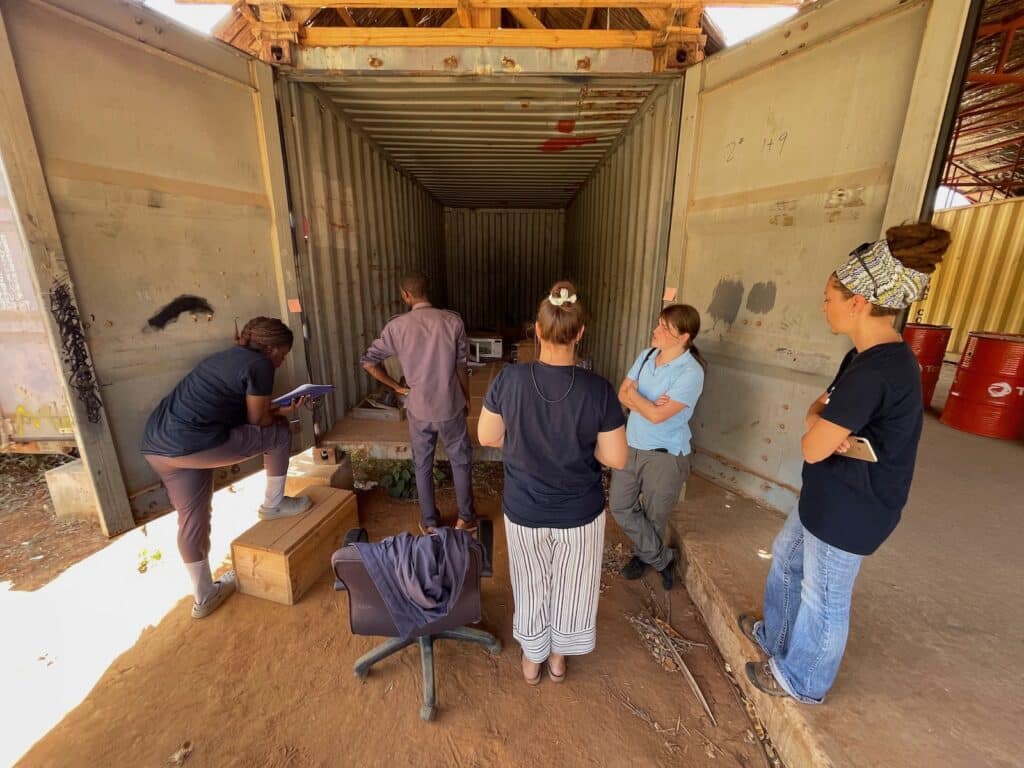
She also watched demonstrations of more experienced rats who were trained to search both inside a shipping container for wildlife targets hidden within boxes and outside ‘mini containers’ by sniffing a vent hole on the side. These ‘mini containers’ held small vials of either i) wildlife material, ii) other smelly substances commonly used by smugglers to conceal the presence of illicit material, or iii) a mixture of both.
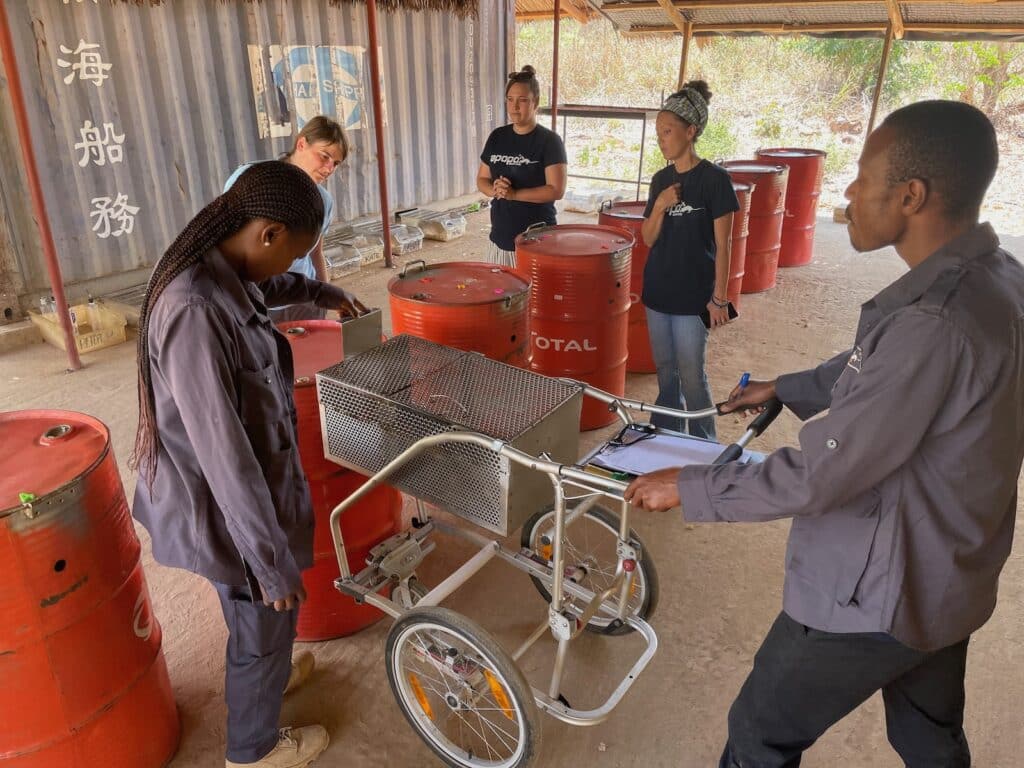
There is huge potential for the rats to work within seaport environments where large volumes of illicit material is often smuggled within shipping containers. With continued support from our partners and donors as well as the Tanzanian wildlife and port authorities, APOPO expects the rats will complement existing screening methods within the port environment to improve detection and ultimately deter wildlife trafficking.
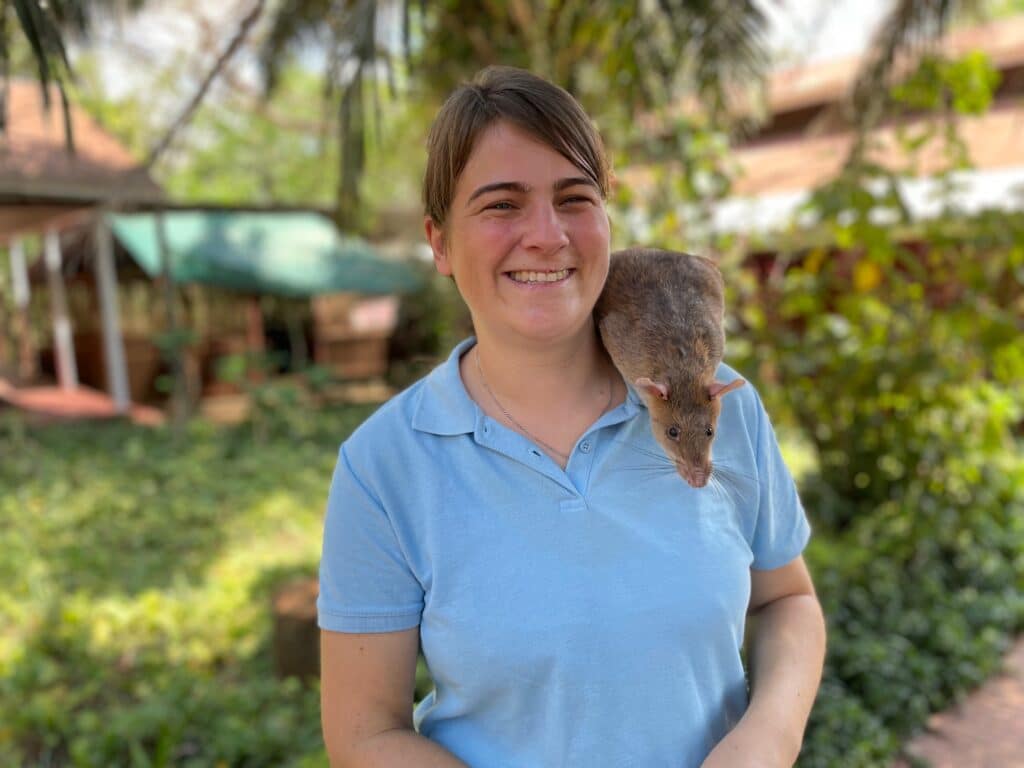
“It is absolutely amazing what these rats are able to sniff out. And I love how they each have their own personality which really shine through on the job. We are very impressed with APOPO’s work and are excited to continue our collaboration against wildlife crime,” said Flora.
